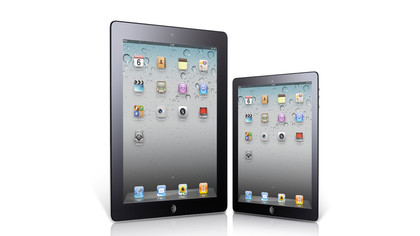Tim Cook one year on: how's Apple doing?
The head of the world's most valuable company
Cook isn't just more affable than Jobs. He's more generous too. In February, he told Apple staff that he'd donated $100 million of Apple's money to charities, with $50 million to hospitals and a further $50 million to Product Red.
Apple now matches employees' charitable donations to the tune of $10,000 per employee per year, and it appears to be more charitable to employees and investors too: under Cook's watch Apple has introduced dividend payments for shareholders and deep product discounts for staff.
It's in stark contrast to Steve Jobs, who reportedly told employees that giving money to charity was a waste of time. He also believed dividends wasted cash that Apple could better spend on making new products.
The dividend issue shows another difference between Jobs and Cook. Writing on The Street, Jim Cramer was one of several analysts who believed that Cook's timing was terrible. "What bothered me was that this was a very special weekend for Apple, the weekend the iPad hit the stores, and… the dividend stole the thunder from the actual story, a new device that I think is taking America by storm." Jobs, it's safe to say, wouldn't have let that happen.
In May, Tim Cook achieved something Jobs couldn't: offloading the burden of updating Java to Oracle. Jobs spent years trying to persuade Oracle to take responsibility for Java on OS X. And now, in the wake of the Flashback Trojan horse, Tim Cook has managed just that.
Tim Cook, then, is a smart guy. But is he a product guy? Speaking to Forbes, former Apple engineering Vice President Max Paley said Apple's engineer-driven culture appears to be changing. "I've been told that any meeting of significance is now always populated by project management and global-supply management," he said. "When I was there, engineering decided what we wanted, and it was the job of product management and supply management to go get it. It shows a shift in priority."
Core concerns

Apple watchers have two concerns: whether Jobs left Apple with enough product ideas to keep the company on top for another few years; the second is while Cook may be a genius when it comes to business, he might not be a genius when it comes to products. The fear is when the products Jobs oversaw run out, that'll be the end of the Apple we know and love.
Sign up for breaking news, reviews, opinion, top tech deals, and more.
Critics argue the evidence is right in front of us. The biggest Cook-era products so far, the iPhone 4S, the new iPad and the latest Apple TV, are minor upgrades to existing products, and if rumours of an iPad mini are correct, then Cook is signing off on products that Steve Jobs rejected. He's already green-lighted the new Apple TV interface which, according to former Apple TV engineer Michael Margolis, was "tossed out five years ago because SJ didn't like it. Now there is nobody to say 'no' to bad design."
When Steve said no
It's important to take Steve Jobs' dismissals with a pinch of salt, as he often derided products Apple would go on to make. He dismissed tablets ("People want keyboards"), mobile phones ("We didn't think we'd do well in the cellphone business") and ebooks ("People don't read any more"), among many, many others.
Jobs' dismissal of seven-inch tablets and Apple TV designs could have been because they weren't right at the time. The idea that Jobs wouldn't have unveiled the iPhone 4S is odd, too, as Jobs was still involved in Apple during its development.
Apple has always made incremental updates: the iPhone 3GS was a relatively minor update to the iPhone 3G. And concerns about Apple's ability to design more great products are rather insulting to Jonathan Ive, whose group remains one of the most talented design teams in the world.
Is Tim the right man to run Apple? Perhaps the best people to ask are the ones who actually work there. US careers site Glassdoor surveys top firms' employees, and, in March, Apple staff gave Tim Cook a 97% approval rating, placing him above every other CEO in the tech industry. That suggests that when Cook promised to defend Jobs' legacy, he meant it.
Tim Cook is measured whereas Steve Jobs was explosive, Cook is inclusive whereas Jobs was arrogant, and Cook is pragmatic whereas Jobs was destructive. But they share one key attribute: a genuine passion for Apple, its products and its customers.

Contributor
Writer, broadcaster, musician and kitchen gadget obsessive Carrie Marshall has been writing about tech since 1998, contributing sage advice and odd opinions to all kinds of magazines and websites as well as writing more than twenty books. Her latest, a love letter to music titled Small Town Joy, is on sale now. She is the singer in spectacularly obscure Glaswegian rock band Unquiet Mind.